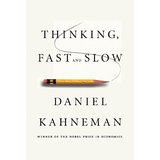Dr. Mort Orman here and this week, I started a new challenge in my private Facebook group called The League Of Extraordinary Stress Eliminators.
We are 40-strong stress eliminators…and growing, and we all share a passion for identifying the internal causes of human stress.
NOTE: If you want to join this group, just look it up in Facebook, make sure you are on the Group Page and not the regular Facebook Page, then read the full description and make sure you complete the short online application and submit it before you click the “Join Group” button.
Thinking About Thinking
So I was thinking about thinking the other day, and I started making a list of all the different types of thinking that I could identify.
Since how we think can either create or alleviate certain types of stress in our lives, this seemed like a pretty useful exercise.
To my surprise, I came up with so many ideas and such a long list, that I created a challenge to invite all my fellow group members to go through the very same process.
So I started a new discussion thread (#thinking), and I asked them all to share their list of thinking types as well.
Automatic Thinking .vs Reasoned Thinking
One of the first ideas about thinking that popped into my mind was the distinction between automatic and reasoned thinking.
I’ve been teaching about and writing about automatic thinking, and it’s role in causing stress in our lives, for more than 35 years.
So I was very pleased when this important distinction was recently highlighted by Nobel Prize-winning psychologist Daniel Kahnerman in his best-selling book Thinking, Fast And Slow.

According to Kahnerman, much of our everyday thinking is “fast thinking” or what we both call “automatic” thinking.
It usually occurs so fast and so automatically, that we don’t even realize it is happening.
Yet it determines how we feel, how we make quick decisions, how we interpret events around us, our immediate tendencies to behave, and a whole bunch of other factors.
While fast thinking developed to help make quick decisions and function more efficiently in life, it is notoriously faulty, biased and susceptible to false conclusions.
“Slow thinking,” on the other hand, or what Kahnerman and I call more “reasoned thinking,” involves a different part of our brain and requires a lot more deliberate, conscious mental effort.
Slow thinking can still be erroneous, but since it is not primarily based upon the primitive, reactive part of our brain, and since we have time to reason a bit more clearly, it can help us overcome any deficiencies that fast thinking often produces.
Lack Of Personal Control
Kahnerman also points out in his book that fast or automatic thinking, as error-prone as it may be, is not under our direct conscious control.
Therefore, it can’t be stopped, easily changed or eliminated.
This is critical to accept and understand if you want to become masterful at eliminating much of your stress.
The secret to mastering stress is to become much more aware of your automatic thinking and behaving tendencies.
But once you become aware of these internal causes, you aren’t going to be able to control or get rid of them.
All is not lost, however, since gaining more awareness will allow you to draw upon your more rational, reasoned thinking to overcome or nullify any defects in your automatic responses.
So understanding the concept of automatic (fast) thinking is critical for anyone who wants to truly improve their ability to eliminate stress.
It’s not really important if all you want to do is manage just the symptoms of your stress.
But if you want to master stress by learning how to identify and deal with internal causes, you must understand the role that automatic thinking plays in your life, and then you’ve got to get more clarity about the particular types of automatic thinking that get you into trouble and contribute to your problems and stress.
To your health, happiness and success,
Dr. Mort Orman, M.D., International Speaker, Author And Founder Of The Stress Mastery Academy | http://DocOrman.com


